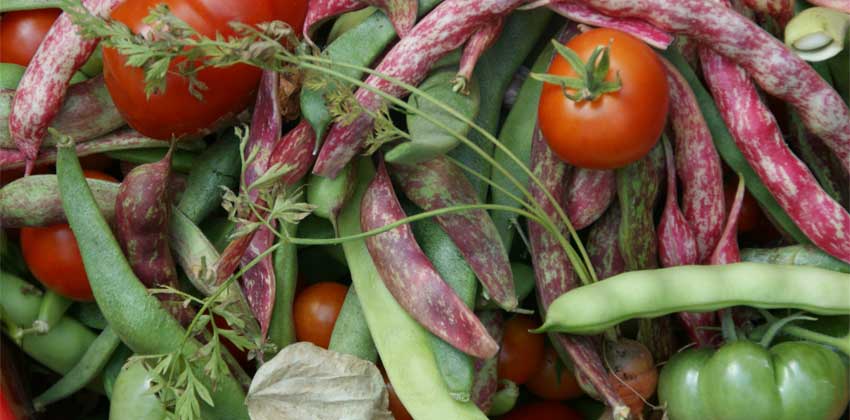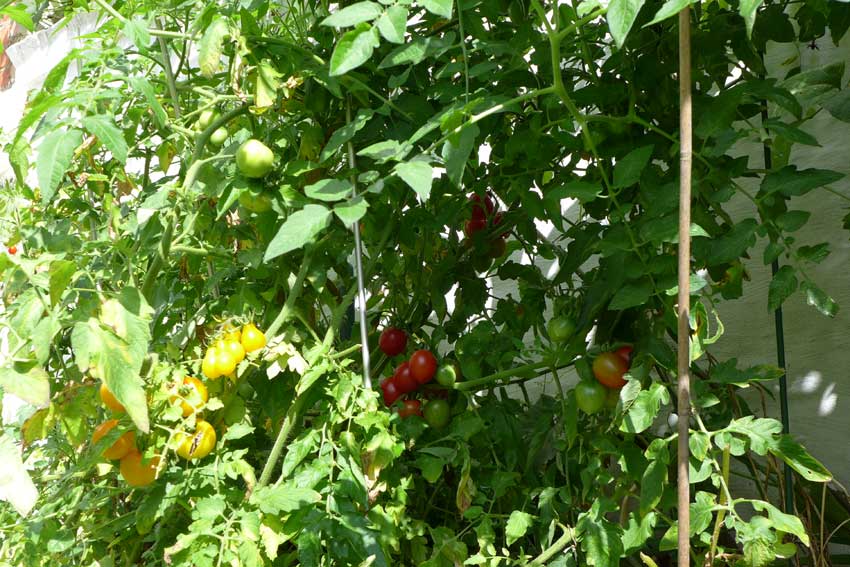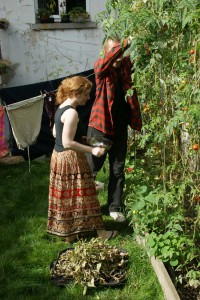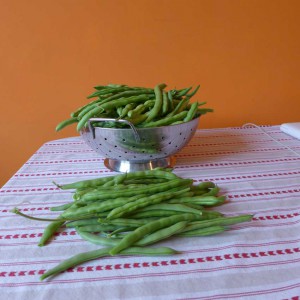
It is important to say here that the choice to grow vegetables in a city garden is not about attempting to feed a family or replicate the BBC comedy The Good Life. This diary concerns recreational gardening fitted between busy working lives and full time family responsibilities. The aim here is to bring something of the country quality of life into the city as a respite from the constant busyness of modern life.
Why would you garden?
Quite simply, you have to want to. Gardening requires physical work, patience, attention to detail and sustained commitment over the key growing times of the year. It should not be a drudgery or an annoying chore. If planned properly the physical work is minimal. What is most required is an intellectual interest in producing crops working within the limitations of physical space, seasons and soils.
Use of space
The main point of this diary is to examine just what can be grown in limited space. Whether it is a few pots on a window sill, a few trays hung on a railing, a few hanging baskets or a collection of pots on a balcony, vegetable gardening can make excellent use of under-used spaces. The creativity is utilising small garden spaces for planting, maximising what opportunity is available is the real challenge of the small scale urban gardener.
Exercise and diet
Gardening is the under-sung hero of the exercise world. The daily “hour in the garden” required to produce the best results involves a constant practice of small exertions and gentle exercise widely recognised as beneficial to health. The produce from the garden can prove an excellent incentive towards healthy eating, particularly with children, where the “garden to plate” routine brings everyone closer to the “you are what you eat” maxim.
Education
Even after 20 years of gardening the learning still goes on. With the un-seasonal changes in weather occurring more regularly, the decrease in a proper spring, gardening requires a longer term perspective on weather and climate. Learning how to adjust to these changes, how to read the weather, how to use the plants available and how to make best use of limiting conditions, is a lifelong learning exercise.
Expertise
No one can know your garden like you do. If every garden is affected by maybe 100 conditions or factors, only observable after prolonged exposure over several years, each gardener becomes the expert in their own small piece of the puzzle. Plants that grow well in one garden may fail in another. Plants that work well one year may fail the following year. Understanding the changing conditions in a garden over time is possibly the closest we can come to understanding the climate change more generally affecting the whole planet.

Mental health
Living in a modern city is a stressful exercise. Keeping up with the pressures of work day in and day out leads to feelings of exhaustion and overload. Add to these the occasional little (or large) life crisis and no wonder reports of mental health problems are increasing every year. The un-recognised epidemic it has been called. It is now widely recognised that horticultural therapy has an important role to play in helping people recover from mental health issues. Some small scale gardening can help most people balance out their day and afford a little space of quiet “me time.”
Growing food
There is an old expression, “growing food is growing people.” In the busy modern world people – especially children – have little connection with the food they eat. This loss of a fundamental knowledge, once essential for life has left most people dependent on what is given to them for food. Restoring any small part of that knowledge to the next generation seems a worthwhile contribution to the future.

